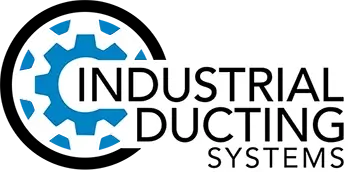Recycling Facility Ducting Solutions
Recycling operations encompass a diverse range of facilities processing materials including paper, plastics, metals, electronics, and construction debris. These facilities face unique air quality challenges due to the unpredictable nature of incoming materials and the variety of processing operations required to prepare materials for reuse.
Modern recycling facilities often integrate multiple processing operations including sorting, shredding, grinding, melting, and cleaning processes that each generate different types of airborne contaminants. The industry has experienced significant growth and technological advancement, with automated sorting systems and advanced processing equipment that can create new emission sources.
Recycling operations face particular challenges related to unknown contaminants in incoming materials, seasonal variations in material composition, and the need to maintain worker safety while processing materials that may contain hazardous substances. The industry also contends with significant dust and particulate emissions that can impact surrounding communities.
Specific Air Quality Requirements & Regulations
Recycling facilities must comply with various EPA regulations depending on the materials processed. The Resource Conservation and Recovery Act (RCRA) establishes requirements for facilities handling hazardous waste, while the Clean Air Act addresses air emissions from recycling operations.
OSHA standards apply broadly to recycling operations, with specific requirements for different material types. Metal recycling operations must address exposure to various metals, while paper recycling may involve combustible dust hazards requiring specialized controls.
Electronic waste recycling facilities face additional regulatory requirements due to the presence of lead, mercury, and other hazardous materials. These facilities may require specialized containment systems and emission controls.
Temperature requirements vary significantly across recycling operations. Metal processing may involve temperatures exceeding 2000°F, while plastic processing typically requires 300-500°F. Some operations may generate minimal heat but require temperature control for worker comfort and equipment operation.
Construction Process & System Design Considerations
Recycling facilities require flexible ventilation systems that can accommodate varying material types and processing requirements. The construction process must address the dynamic nature of recycling operations, where equipment configurations and material flows may change frequently.
Ductwork design must accommodate the diverse equipment used in recycling operations, from large shredders and balers to small sorting stations. The unpredictable nature of recycling materials requires robust system design that can handle varying contaminant types and concentrations.
Installation must coordinate with the continuous nature of many recycling operations, as these facilities often operate extended hours to process incoming materials. Temporary ventilation systems may be necessary during construction to maintain worker safety and operational requirements.
Explosion prevention measures may be required for operations generating combustible dusts, particularly in paper and plastic recycling.
Technical Specifications & Performance Requirements
Recycling facility ventilation systems typically require 200,000 to 1,500,000 CFM depending on facility size and materials processed. Individual process areas may require 10,000-100,000 CFM depending on equipment size and emission characteristics.
Ductwork materials must withstand the abrasive nature of recycling materials while providing long-term durability. Galvanized steel with abrasion-resistant coatings is common for general applications, while stainless steel may be required for corrosive environments.
Transport velocities must be sufficient to prevent material accumulation while accommodating the varying densities of different recycling materials. Typical design velocities range from 3,500-4,500 FPM for main lines carrying heavy particles and up to 3,000 FPM for lighter materials.
Static pressure requirements typically range from 15-25 inches of water column, depending on filtration requirements and system complexity. The unpredictable nature of recycling materials may require additional pressure capabilities to handle varying system loads.
How Industrial Ducting Systems Delivers Solutions
Industrial Ducting Systems understands the unique challenges of recycling operations, where air quality control must accommodate diverse materials and changing operational requirements. Our flexible approach addresses the dynamic nature of recycling facilities while providing effective emission control.
Our 2D CAD design services provide detailed system layouts that can accommodate the diverse equipment and material flows typical in recycling operations. We understand the importance of flexible system design that can adapt to changing material types and processing requirements.
Our material expertise ensures proper selection of durable components that can withstand the abrasive nature of recycling materials while providing long-term performance. We provide comprehensive quantity take-offs that account for the robust construction required for recycling applications.
Our logistics coordination addresses the unique challenges of recycling facility scheduling, understanding that these operations often run continuously and cannot easily accommodate extended shutdowns. We provide installation approaches that minimize disruption to ongoing operations while ensuring effective air quality control.
Experience the Industrial Ducting Systems Advantage
Flexible system design, abrasion-resistant construction, multi-material expertise—discover why recycling facilities trust us with their most challenging dust control and emission management needs. Let's design a system that exceeds your expectations.
